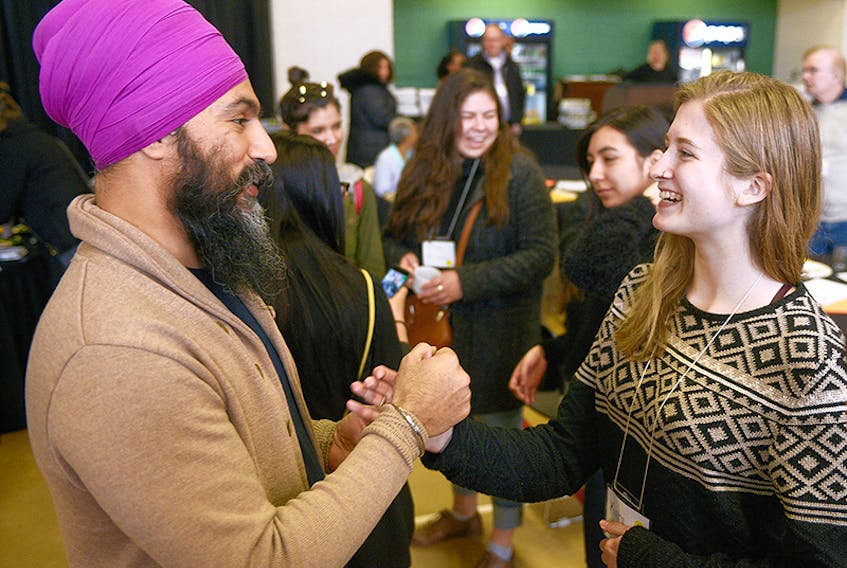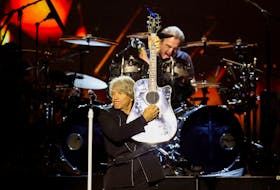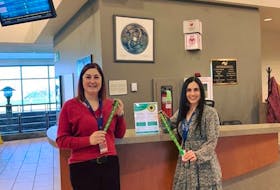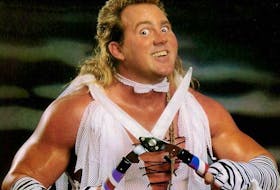OTTAWA — There’s a particularly gut-wrenching scene in Jagmeet Singh’s new memoir, Love & Courage, where he returns as a young lawyer to his father’s Windsor apartment, littered with empty liquor bottles and lottery tickets. Ravaged by years of alcoholism, his father weighs just 110 pounds and uses a walker to get around. Singh describes carrying his father to the bathroom and bathing him, while his father tries to make small talk. Before leaving, he moves to empty an open bottle of vodka on the kitchen counter, but his mother stops him. “Either he will die, or he will go to a hospital to live,” she tells him. “We can’t force him — it’s his choice.”
While Singh, leader of the federal NDP since October 2017, has previously alluded to having faced hardship during his youth, his surprisingly intimate memoir opens a new window onto a youth that was at times heartbreakingly painful. He describes the racism and bullying that he faced as a young Sikh, a deeply disturbing episode of sexual abuse at the hands of a martial arts instructor, and the routine stops by police he faced as a young adult, which he attributes to racial profiling.
But the backbone of the story is Singh’s relationship with his father, and the alcoholism that tore the family apart and nearly killed him. In this book, released on the eve of an election campaign, Singh’s political career takes a backseat to a more intensely personal story. It’s hard to say whether it will persuade Canadians to vote for him — presumably the desired effect. But it does give new meaning to Singh’s signature political catchphrase, “love and courage.” It must have taken a great deal of both to forgive the man who caused him so much pain, and to stand by him as he finally put his life back together. “That was the biggest struggle,” Singh told the National Post in an interview Monday. “That was the hardest thing in my life.”
The backbone of the story is Singh’s relationship with his father, and the alcoholism that tore the family apart and nearly killed him.
The book ends with his reluctant decision to run for federal office in 2011, a campaign he lost by about 500 votes. An epilogue skims over his subsequent six years as an MPP for the Ontario New Democrats, and the final scene takes place on Oct. 1, 2017, the day he won the federal NDP leadership. There is no mention of anything that has taken place since then — nothing about the challenges he’s faced in the federal party’s poor fundraising and dismal polling results, nor about his February by-election win in Burnaby South, which finally earned him a seat in the House of Commons. It’s an unusual choice for a politician trying to sell Canadians on his vision for the country in the last months ahead of an election; those interested in what the NDP will offer voters this fall won’t find answers here.
This was a deliberate decision, Singh said, to offer something unexpected. “This is a unique opportunity where I can talk about why I care, and the struggles that I experienced, and the shared struggles that many Canadians experience,” he said. “The ‘why’ behind the vision.”
The result is a story that, if not especially well-written, is at least compelling and mercifully light on political pablum. It starts with his parents, whose marriage began after Singh’s father, Jagtaran Singh Dhaliwal, posted a classified ad in an Indian newspaper in 1976 that read “Young Panjabi physician looking for a woman living outside of India.” Singh’s mother, Harmeet Kaur, was already living in Canada, and decided to sponsor the visa of the man she’d never met. Singh was born in 1979, and a sister and brother followed.
Singh’s father, already a doctor in India, had to re-certify in Canada and ended up landing a medical residency in Newfoundland, where Singh spent his early years. The family then moved to Windsor, where Singh’s father worked as a psychiatrist. The family was affluent — Singh was eventually sent to a preparatory school in Detroit, and his father encouraged him to try horseback riding, golf, skiing and tennis. He mentions driving around in his father’s Mercedes as a teenager.
But Singh describes himself as a painfully shy child who frequently was bullied because of his skin colour and the head covering he wore, a precursor to the turban he adopted in his teens. He describes fighting other children, using skills he picked up in martial arts classes to defend himself, and childhood insults like “diaper head” later giving way to more serious slurs like “terrorist,” especially after the 9/11 attacks on the World Trade Center.
One of the memoir’s most disturbing scenes takes place when Singh was still a young child, after his taekwondo instructor, Reginald Neilson, invited him to his house for a “special program.” The sexual abuse that followed, Singh claims, continued on a weekly basis until he quit training. He didn’t speak about what had happened for years afterward, and describes blaming himself for the abuse. Neilson has since died.
The backdrop to all of this is a home life that grew increasingly erratic as his father slipped further into drunkenness, which made him angry and volatile. Singh describes himself, as a child, emptying out his father’s vodka bottles and filling them with water in an ill-fated attempt to fool him into sobriety. Years later, in university, he would become the guardian of his teenage brother, Gurratan, moving him into his apartment in London, Ont. and enrolling him in high school when it became too unhealthy for him to live with his parents in Windsor. When his father’s medical licence was suspended due to his alcoholism, Singh seems to have become the decision-maker for the family, moving his father out of his childhood home and into an apartment when his behaviour became unmanageable, and acting as his parents’ lawyer during their bankruptcy filing.
“The hardest thing to cope with was when someone that you love is hurting the family, hurting you, and to understand that it’s an illness, it’s not a choice,” he said. “A kind person that did so much harm is hard to understand. It was hard to come to grips with.”
The backdrop to all of this is a home life that grew increasingly erratic as his father slipped further into drunkenness, which made him angry and volatile.
Singh’s father did eventually get sober. Singh helped him regain his licence and he now practises as a psychiatrist in the Toronto area. “Even against my better instincts and my better judgment, I still kind of believed that we could turn things around and he would turn things around,” he said. “And he did.”
It was only after his family situation was more stable that Singh’s brother, Gurratan, began pushing him to enter politics. Both had worked as activists, calling for the 1984 riots in Punjab, during which thousands of Sikhs were killed, to be labelled a genocide, and condemning the practice of carding by police in the Toronto area. Singh said he was reluctant to jump into politics. “It was not something I wanted to do because of how uncertain life had been,” he said. “I didn’t want to enter a whole new phase of uncertainty when I had this really stable, good thing going.” But Gurratan finally won out.
If there is little in this memoir in the way of an explicit pitch to voters, it remains to be seen how Singh’s story will be received by Canadians, many of whom still know little about him. But he is hoping, clearly, they will see something in his background that resonates.
“If that helps people see me as someone they can trust, that’s amazing,” he said. “But most importantly, if this book can make people’s lives better, then that’s the most important thing.”
• Email: [email protected] | Twitter: MauraForrest
Copyright Postmedia Network Inc., 2019









